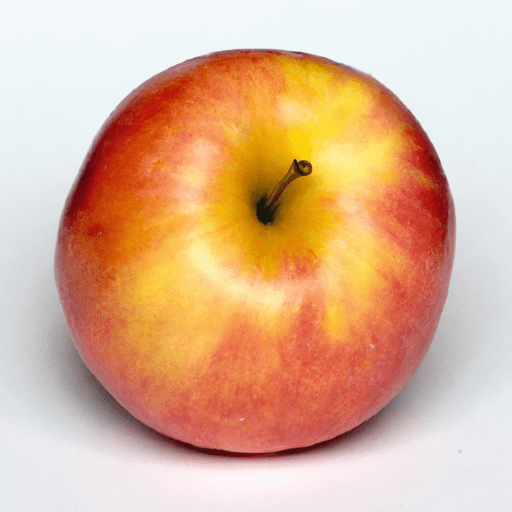Exploring McIntosh Apples: A Sweet and Versatile Fruit
When it comes to apples, the McIntosh variety holds a special place in the hearts of fruit enthusiasts and cooks alike. With its delectable flavor profile, versatility in the kitchen, and rich history, McIntosh apples are an essential ingredient for any food lover. In this blog post, we will delve into the world of McIntosh apples, exploring their taste, culinary uses, nutritional value, and fascinating facts.
A Taste Sensation
McIntosh apples are known for their trademark combination of sweetness and tartness, which creates a harmonious balance of flavors. Biting into a McIntosh apple releases a burst of juicy sweetness accompanied by a mild tangy undertone. The tender flesh offers a satisfying crunch, further enhancing the overall experience. This unique taste profile makes McIntosh apples a delightful choice for both raw consumption and culinary creations.
Culinary Versatility
McIntosh apples are incredibly versatile in the kitchen, making them a go-to ingredient for a wide range of dishes. Their tender texture works well in cooked preparations, while their delicate sweetness adds depth to desserts. Here are a few notable culinary uses of McIntosh apples:
- Baking: When it comes to baking, McIntosh apples are a popular choice. The sweetness of the fruit intensifies during the baking process, filling your kitchen with a delightful aroma. Use them in pies, tarts, muffins, and cakes for a burst of natural sweetness.
- Applesauce: McIntosh apples shine in applesauce recipes. Their tender texture easily breaks down during cooking, creating a smooth and velvety sauce with a naturally sweet flavor.
- Salads: Thinly sliced McIntosh apples bring freshness and a subtly sweet note to salads. They pair exceptionally well with greens, nuts, and cheese, adding a delicious contrast of textures and flavors.
Nutritional Value
In addition to their fantastic taste and culinary versatility, McIntosh apples offer a host of nutritional benefits. Packed with essential vitamins, minerals, and dietary fiber, these apples are a fantastic addition to a balanced diet. Here are some key nutritional aspects of McIntosh apples:
- Vitamin C: McIntosh apples are a great source of vitamin C, which is essential for a healthy immune system and skin health.
- Dietary Fiber: High in dietary fiber, McIntosh apples can aid digestion and contribute to a feeling of fullness, making them a great choice for those watching their calorie intake.
- Antioxidants: These delightful apples contain antioxidants, which help fight against cell damage and may have positive effects on heart health.
A Short History of McIntosh Apples
McIntosh apples have a captivating history that dates back to the early 19th century. They were first discovered by John McIntosh in the early 1800s in Ontario, Canada. The McIntosh apple quickly gained popularity due to its remarkable taste and became a staple variety among fruit growers. Today, it remains one of the most beloved apple varieties worldwide.
Fascinating Facts
Here are some interesting facts about McIntosh apples that might surprise you:
- McIntosh apples are the parent apples of several popular apple varieties, including the well-known Honeycrisp.
- The McIntosh apple is the official apple of the Canadian province of Ontario.
- McIntosh apples are commonly harvested in September and October, making them a popular fruit in fall recipes.
In conclusion, McIntosh apples offer a sensory experience like no other. With their sweet yet tangy taste, culinary versatility, nutritional benefits, and rich history, they have rightfully earned their place in the world of food and cooking. Whether you’re enjoying a crisp bite of a McIntosh apple or incorporating it into your favorite recipes, this apple variety is sure to bring joy to your culinary adventures. So, why not pick up some McIntosh apples during your next visit to the grocery store and embark on a flavorful journey? Happy cooking and happy eating!
Note: The images used in this blog post are for illustrative purposes only.
McIntosh Apples
Origin: The McIntosh apple was discovered by John McIntosh in Canada in 1811. It was found as a chance seedling on his farm in Dundela, Ontario. McIntosh experimented with the apple, cultivating it further and eventually distributing the trees to other farmers. Today, the McIntosh apple is widely grown in Canada and the northeastern United States.
Common Uses: McIntosh apples are known for their juicy and tender texture, making them great for eating fresh. They are also suitable for a wide range of culinary uses, including baking, cooking, and juicing. Their slightly tart and tangy flavor lends itself well to applesauce, apple pies, apple crumbles, and apple-based desserts.
Nutritional Benefits: McIntosh apples are a good source of dietary fiber, containing about 4 grams of fiber per medium-sized apple. They also provide essential vitamins and minerals, such as vitamin C, potassium, and antioxidants. Apples are often included in a well-balanced diet due to their low calorie content and potential health benefits, including supporting heart health and aiding digestion.
Unique Properties: McIntosh apples have distinct characteristics that set them apart from other apple varieties. They have a red or green skin that is often splashed with bright red patches. The flesh is white or off-white and is known for being both juicy and tender. The flavor of McIntosh apples can vary depending on harvest time and growing conditions, but they generally offer a balance of sweetness and acidity.
Historical Significance: The discovery of the McIntosh apple had a significant impact on the apple industry in North America. It became immensely popular due to its appealing flavor, texture, and versatility. McIntosh apples are considered a heritage variety and are still highly regarded today. The McIntosh family continued to cultivate and promote the apple for several generations, helping establish its widespread recognition and popularity.




Use the share button below if you liked it.
It makes me smile, when I see it.